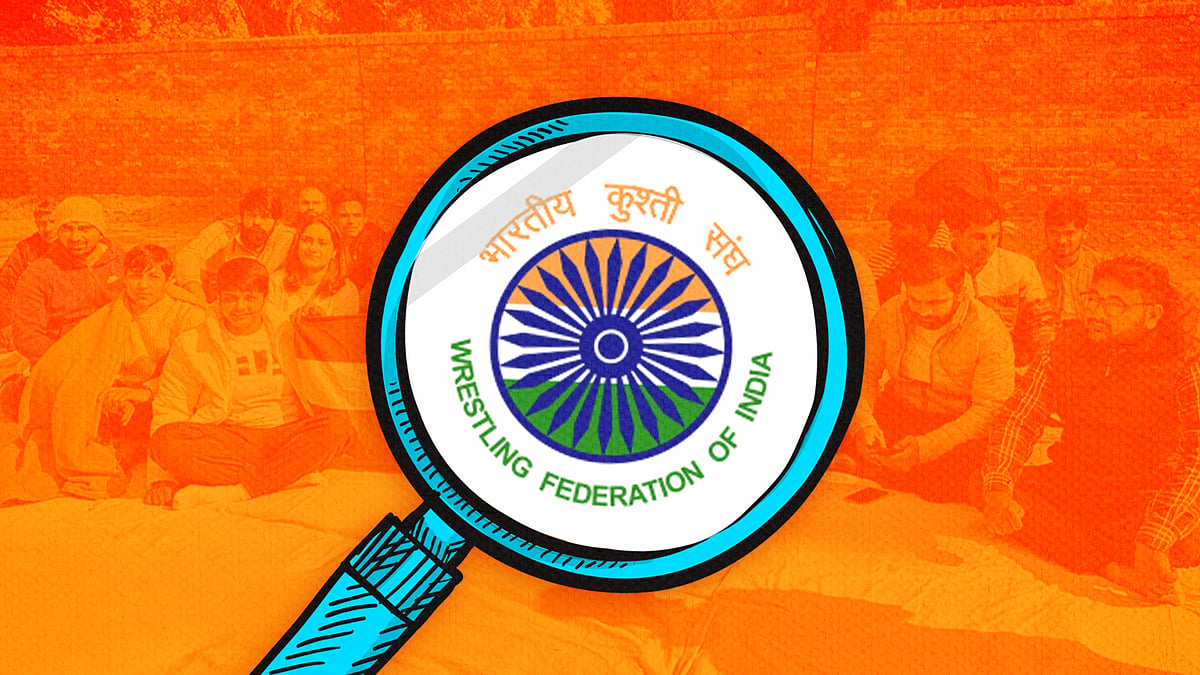100 episodes of Mann Ki Baat: Olympians pen columns, stars hail ‘favourite show’
At least two Olympians wrote hagiographical columns on the PM’s broadcast.
Milestones and masterstrokes have been key to the Narendra Modi government. Be it the G-20 presidency, outshining the United Kingdom’s economy, or the government’s flagship programmes, the scale has been important.
So it was another chance for pageantry – from a conclave in Delhi to special screenings across India – when the 100th episode of Prime Minister Narendra Modi’s Mann Ki Baat was telecast on All India Radio on Sunday. And even as the wrestlers’ protest in Delhi over sexual harassment allegations remained a source of consternation for the government, the broadcast invited a stamp of approval from film stars and sports personalities.
A special screening was held across all Raj Bhavans, and BJP leaders across the country listened to the prime minister, ostensibly without batting an eyelid, to mark the episode – the first Mann Ki Baat was aired on October 3, 2014, on Vijayadashami.
Columns by Olympians
For some celebrities, it was their “favourite show”, while others marveled at Modi’s “mantra” for success. At least two Olympians – Neeraj Chopra and Anju Bobby George – wrote hagiographical columns in newspapers.
Writing for the Indian Express, Olympic gold medalist Chopra ringfenced his column by a caveat that sportspersons “stay away from social and political activities”. The column was limited to the role the PM’s telecast played in inspiring sportspersons and in the growth of sports. “The way Prime Minister Narendra Modi supports players even when they are down undoubtedly gives us the courage to stand again and move forward,” he wrote in the column titled “As Mann ki Baat turns 100, a thank-you note”.
Anju Bobby George, writing for Millennium Post, was relieved to note that the success stories of sportspersons “have found a place” in the radio programme. The Olympian and vice-president of the Athletics Federation of India looked forward to listening to “our Prime Minister inspire, encourage and talk of ordinary people who have made huge difference in the life of others”.
The celebrations began with the national conclave at Vigyan Bhawan in Delhi on April 26. Actors Aamir Khan and Raveena Tandon, Grammy award winner Rickey Kej, sportspersons Deepa Malik and Nikhat Zareen, were among those who accepted the government invite.
Khan, whose wife in 2015 suggested moving out of the country over a sense of insecurity, called Mann Ki Baat “historic” and marveled at how Modi keeps people in the loop about his plans. “You tell your people what you are looking at; how you are seeing the future; how you want their support in that. This is very important communication that happens in Mann Ki Baat,” said Khan.
For Tandon, Modi’s style of interaction felt “like narrating a story”. She congratulated him for bringing people on the margins to the forefront.
Boxer Zareen said that sportspersons and sports are recognised through the PM’s telecast. “Mann Ki Baat reaches people through radio. We win medals. Those people who can’t watch us on social media or TV, our name is also recognised through Mann Ki Baat and people know about sports. One way, it has a lot of impact.”
Malik, president of the Paralympic Committee of India, said the prime minister appreciates all those who contribute to nation-building and they don’t have to be a doctor or engineer.
Stars descend in Mumbai
Meanwhile, at the Mumbai Raj Bhavan, celebrities poured in and came out with glowing tributes for Mann Ki Baat and Modi.
Filmmaker and TV producer Ekta Kapoor was most effusive, calling the telecast her “favourite show”, indicating that she could be among the 23 crore regular listeners of the broadcast. “How beautiful and amazing a show this was! The prime minister’s voice is so impactful that my heart is happy. I think I should employ more people because he has emphasised on employment and education…the biggest strength of Mann ki Baat is that we can listen to real stories rather than fiction.”
Filmmaker Rohit Shetty said the country “was fortunate that we have a leader whose words people listen to and people are inspired by him. And this is very rare.” He set his eyes on attending the 200th or 1000th episode of Mann Ki Baat. “Today is the 100th episode. I want us to meet once again and keep meeting like this. At the 200th and 1,000th episode…and a big event should be held where all those who have benefitted from Mann Ki Baat should come.” Along the way, he dispelled doubts that Mann Ki Baat was only about the PM’s thoughts. “He is also listening to people’s hearts.”
Actor Shahid Kapoor, meanwhile, felt that Modi’s connection with people was a “sign of a great leader”.
For actor Madhuri Dixit, it was amazing to see that “he can devote time to the people and is trying to understand their problems”, while director and producer Dinesh Vijan was “overwhelmed” and believed that nobody knows the country better than the PM. At the Indian High Commission in London, singer Raageshwari Loomba, meanwhile, said that Mann Ki Baat has become a means to celebrate India and its people.
“People don’t need to be a celebrity to be celebrated by the prime minister. You could be an ordinary person doing something extraordinary. And you have a chance to be celebrated at MKB.”
 WFI’s ‘sexual harassment panel’ flouts POSH Act, headed by a man instead of a woman
WFI’s ‘sexual harassment panel’ flouts POSH Act, headed by a man instead of a woman